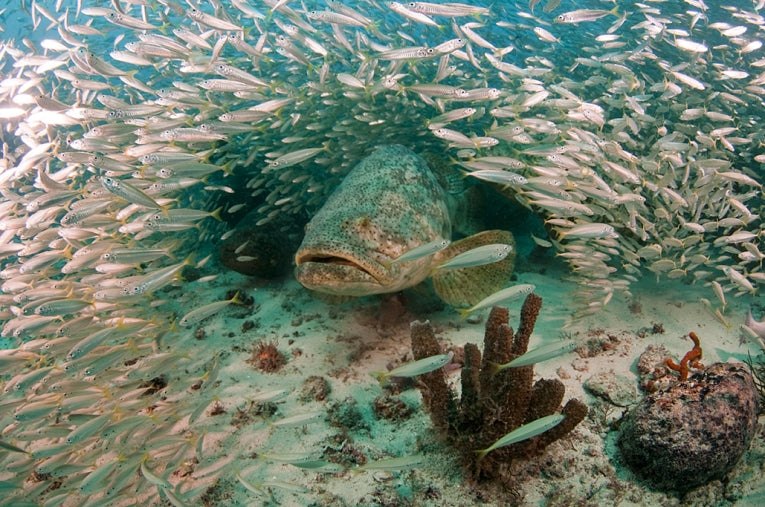The Atlantic goliath grouper, onceover-fished to near extinction along Florida's east and west coasts, is making a significant comeback. And Florida State University scientists aim to find out why.
The native fish is finally on the rebound, 21 years after it received protection in the form of a fishing moratorium.
Prized for their tasty flesh, the fish are capable of growing to epic proportions. The ambling giants, which are described as inquisitive and slow-moving, can grow up to nine feet in length, and up to 800 pounds, living up to 50 years.
Marine biologists from FSU hope to learn as much as they can about the habits that have enabled the mighty fish to thrive. Among other things, they hope to learn if it will be possible to sustainably fish the species at some time in the future.
In the past, studying fish meant killing select specimens, but FSU's scientists have developed non-lethal methods to gather information about the animals, which were fished nearly to extinction in the 1980s.
Among other things, biologists hope to determine individual specimen's ages, migratory patterns, and predatory behaviors, to better understand how the species has managed to rebound so successfully. The marine biologists have enlisted the aid of fisherman to gather data.
"First, while in the past scientists had to sacrifice the fish to gather age, reproductive and predatory information, at FSU we've developed a non-destructive means of obtaining the data that spares its life," said Florida State University Coastal and Marine Laboratory scientist Christopher C. Koenig, who will lead the project with colleagues at the University of South Florida and the University of Florida. "Second, those new, non-lethal data-gathering methods allow us to actively engage commercial and recreational fishermen in the scientific process," Koenig said. "We will train the fisherman to obtain scientific samples, and to tag and release the fish."
Eventually, the data will help inform any changes to existing policy regarding the species. As usual, there is pressure to balance competing interests. Some would prefer to see the species listed as endangered, solidifying their protected status, while others would like to allow fishing to resume.
"Another relatively unstudied group with an economic stake in this species is the diving community," said Koenig. "Interest in underwater viewing of unexploited marine populations, especially including large animals such as goliath grouper, is on the rise."
8th October 2011 - Factual correction made following feedback (some text removed)










